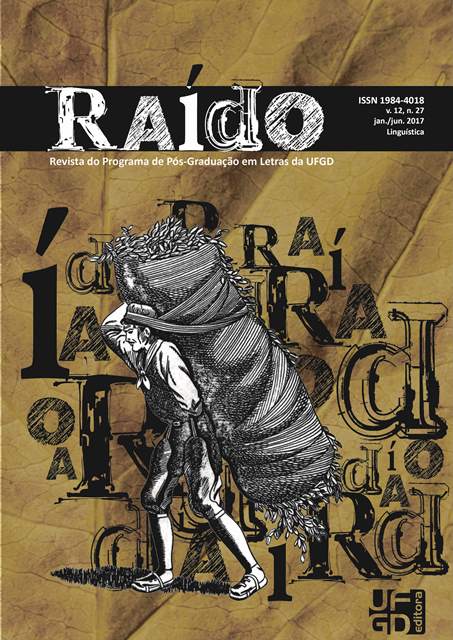Is writing listening? polyphonic analysis of internship reports
DOI:
https://doi.org/10.30612/raido.v11i27.6747Keywords:
Writing in Higher Education, Production of knowledge, Teachers’education, Polyphony.Abstract
We present results of a research project (CNPq 458449/2014-8) on the role of writing in teachers’ education and its relation to knowledge. We start by point out that, according to our work, even when reports present rich information about a class, they seldom bring analyses that use that information as data. Our hypothesis is that this mainly descriptive attitude is related to a difficulty in handling the polyphonic dimension of language, be it in listening (when observing classes), be it in writing (when composing a text on the class). In order to better describe that problem, we adopt Bakhtin’s concept of “polyphony” and propose to discuss how students deal with problems deriving from the need to represent different “voices” in their discourse. We ask: a) if it is possible to find polyphony in reports; b) how we can describe some texts that are neither polyphonic nor monologic; c) how handling polyphony in writing is related to the production of knowledge about teaching. Our data consist of excerpts taken from a corpus of 261 internship reports. Our analyses resulted in three categories that describe different situations found in our data: monologic comments, bivocal hesitation and cacophonic witness.
Downloads
Downloads
Published
How to Cite
Issue
Section
License
Os autores devem aceitar as normas de publicação ao submeterem a revista, bem como, concordam com os seguintes termos:
(a) O Conselho Editorial se reserva ao direito de efetuar, nos originais, alterações da Língua portuguesa para se manter o padrão culto da língua, respeitando, porém, o estilo dos autores.
(b) Autores mantém os direitos autorais e concedem à revista o direito de primeira publicação, com o trabalho simultaneamente licenciado sob a Atribuição-NãoComercial-CompartilhaIgual 3.0 Brasil (CC BY-NC-SA 3.0 BR) que permite: Compartilhar — copiar e redistribuir o material em qualquer suporte ou formato e Adaptar — remixar, transformar, e criar a partir do material. A CC BY-NC-SA 3.0 BR considera os termos seguintes:
- Atribuição — Você deve dar o crédito apropriado, prover um link para a licença e indicar se mudanças foram feitas. Você deve fazê-lo em qualquer circunstância razoável, mas de nenhuma maneira que sugira que o licenciante apoia você ou o seu uso.
- NãoComercial — Você não pode usar o material para fins comerciais.
- CompartilhaIgual — Se você remixar, transformar, ou criar a partir do material, tem de distribuir as suas contribuições sob a mesma licença que o original.
- Sem restrições adicionais — Você não pode aplicar termos jurídicos ou medidas de caráter tecnológico que restrinjam legalmente outros de fazerem algo que a licença permita.



